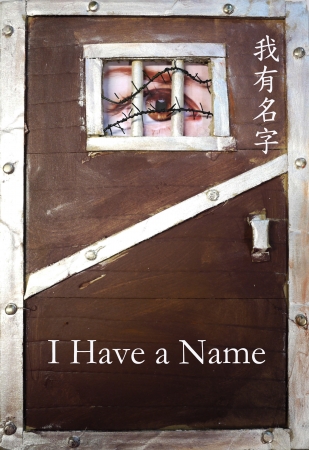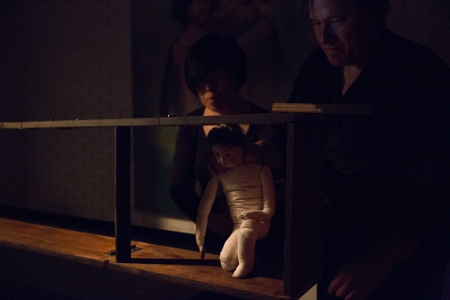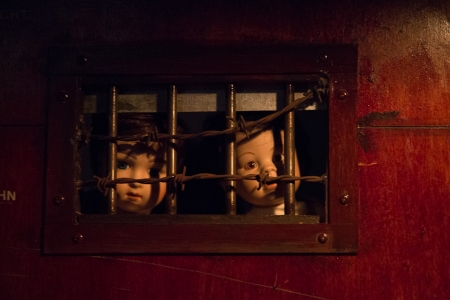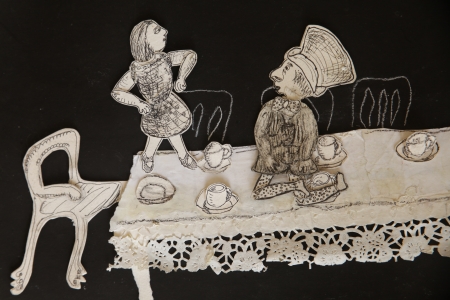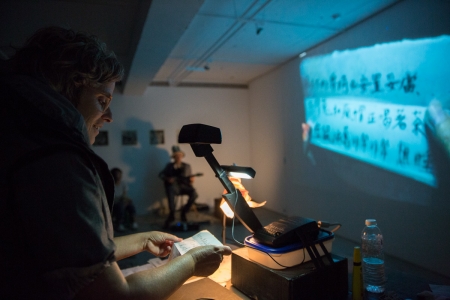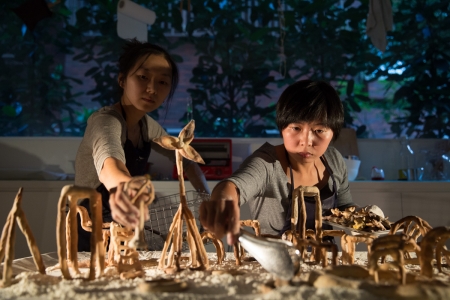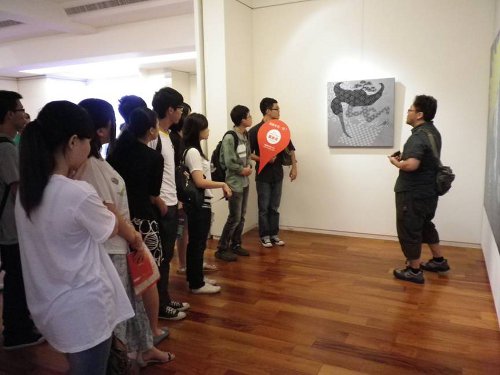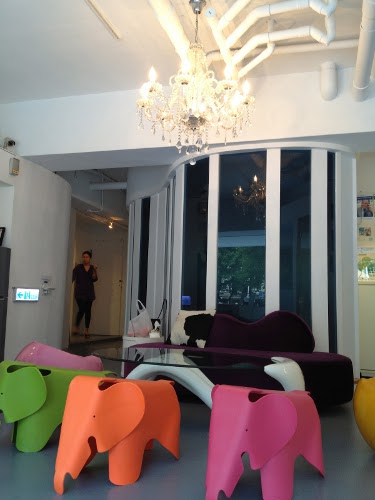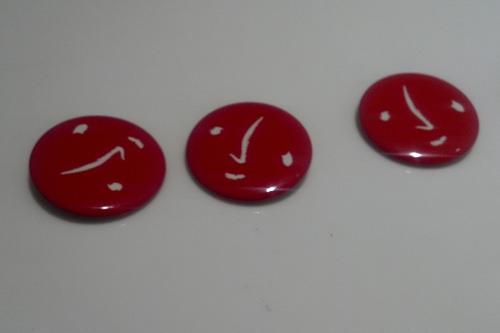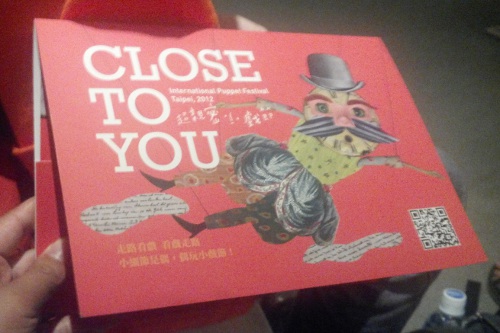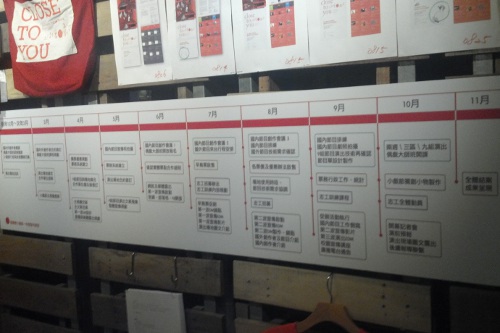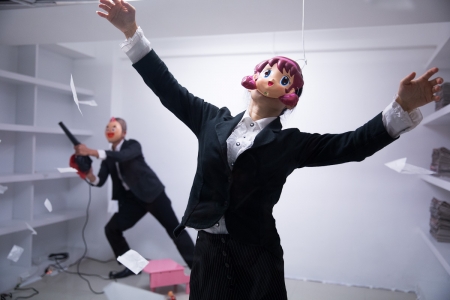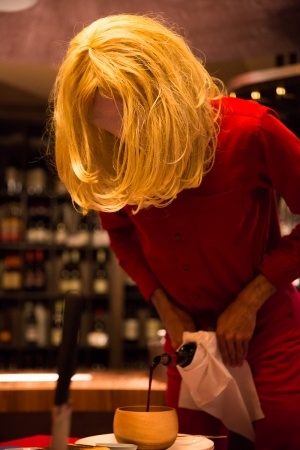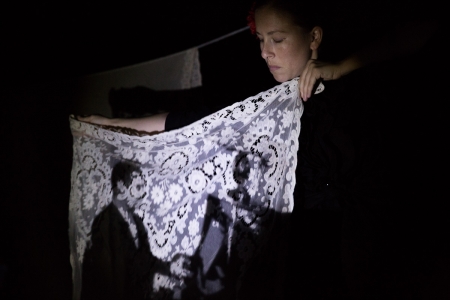The Close To You International Puppet Festival embraces Taipei’s coffee shops, bars and “art spaces” to bring audiences a different kind of theater experience
By Ian Bartholomew / Staff reporter
It is a common complaint that small, intimate theater venues are few and far between in Taipei, but this is changing as theater companies and curators seek out unconventional venues to stage exhibitions and performances. The Close To You International Puppet Festival (超親密小戲節), now in its third year, has embraced the city’s many coffee shops, bars and “art spaces” to bring Taipei audiences a different kind of theater experience from that found in major auditoriums.
The festival, which opens today and runs until Oct. 21, presents nine shows at nine venues around the city. Although it bills itself as a puppet festival, its definition of puppetry is eclectic in the extreme, and the subject matter ranges from magical rabbits to reflections on the Holocaust. The participants are equally diverse, from established puppeteers to artists, and theater technicians of various stripes who wish to experiment with the use of puppets as an expressive medium.
Event curator and artistic director of Flying Group Theater (飛人集社劇團) Shih Pei-yu (石佩玉) told the Taipei Times that one of the fundamentals of the festival was that people not directly associated with puppetry could reach out beyond their own media. “You might have a background in performance art or music, but my aim is for people to work together, and use their expertise within the realm of puppetry,” she said. “The festival is a creative platform where people can experiment with puppetry.”
The festival also includes a masterclass on “how to transform normal things in our life into puppetry creation,” led by puppeteers Chris Green and Erin Orr.
Shih said that she got the idea for the festival while studying in Europe, when she had an opportunity to experience theater in small spaces, “even in people’s living rooms.”
“In Taiwan, I probably would not be welcome into people’s homes,” she said, “but there are now many multifunctional spaces in Taipei which would serve equally well.”
Each show is about 20 minutes, and each event is a block of three shows at different venues centered on a specific area. The Shida Commercial District (師大商圈), which played an important role in the development of the festival, has been abandoned as a result of the recent controversy over the area’s development. The Yong Kang Street Area (永康街區) continues as part of the festival, and two new areas have this year been included: the Mingsheng Community (民生社區) and the Renai Circle (仁愛圓環). Audiences are required to walk from one venue to the next.
“Moving from one venue to another, people will relax, even talk together,” Shih said. “Going to the theater does not have to be such a serious and constricted activity. There will even be a guide to take the audience onto the next venue, and they will provide a commentary about the area along the way.”
This is also a chance for performers interested or directly involved in puppetry to create their own personal works that might be distinct from the repertoire of the company or companies they work for. Artistic director of the Taiyuan Puppet Theater (台原偶戲團) Robin Ruizendaal takes to the stage for a very personal piece of theater that looks into the lives of children who died as a result of the Holocaust in I Have a Name (我有名字). As part of the same series of performances at the Renai Circle, artists Tseng Yen-ting (曾彥婷) and Chen Chia-hui (陳佳慧) use flour, water and an oven to bring their world of puppetry alive in a show titled The Greatest Thing Since The Bread (麵包以後).


